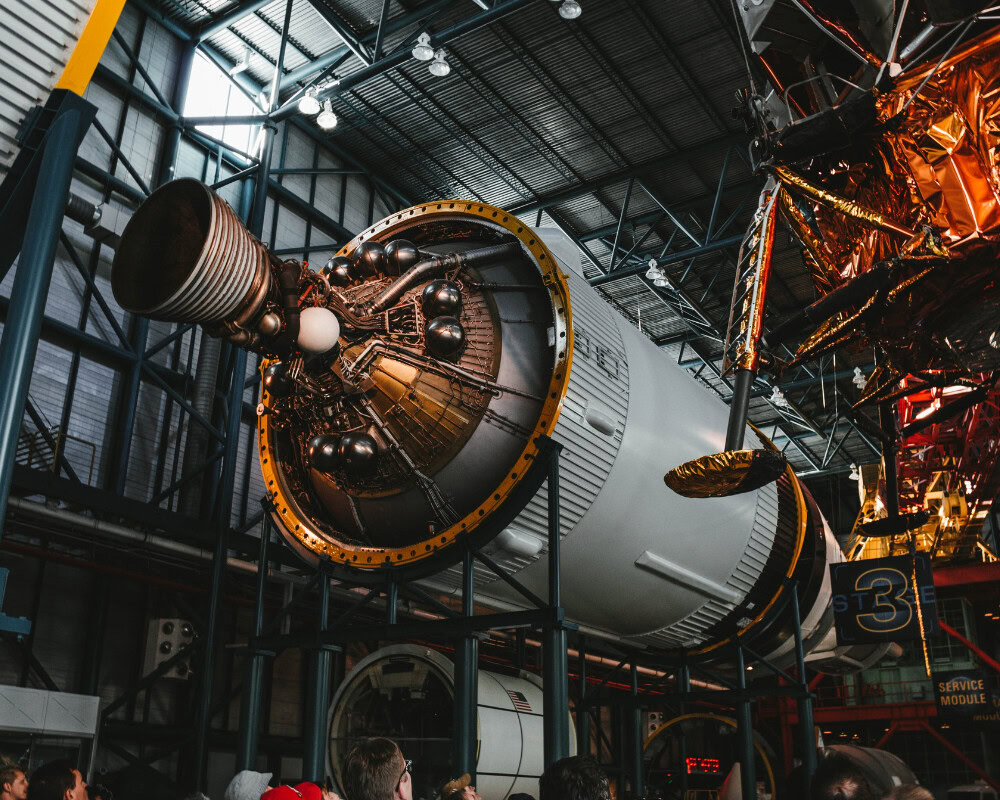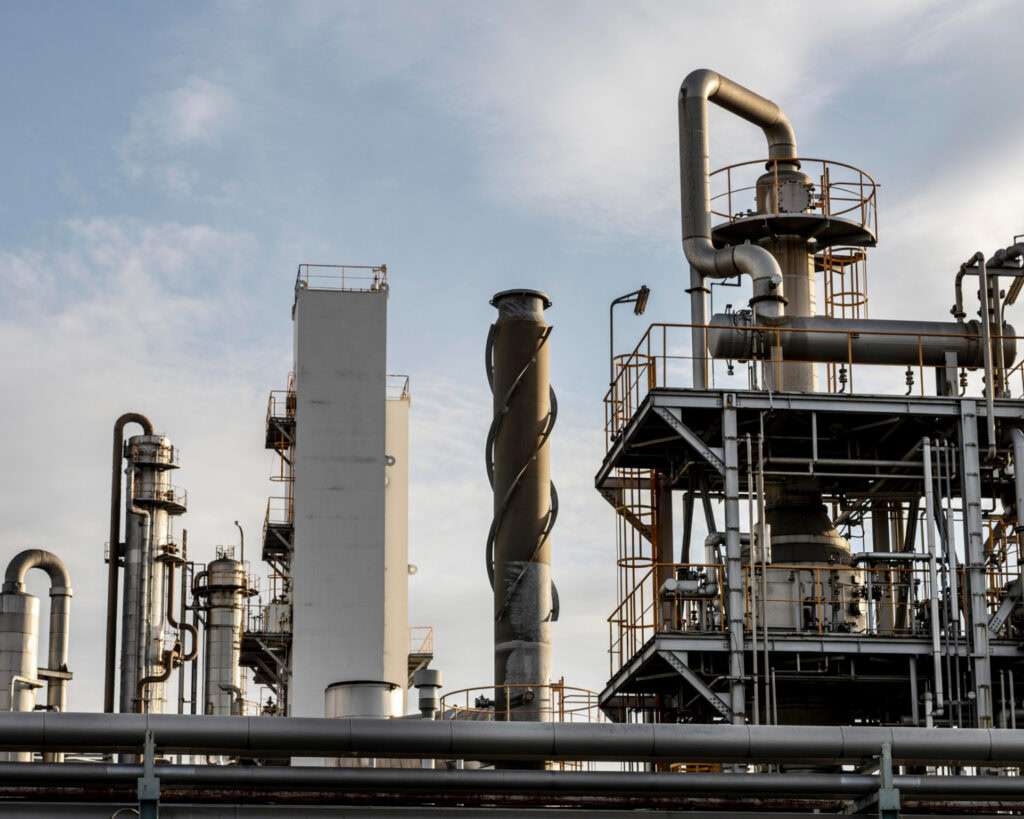Introduction
On the threshold of a new era, the aeronautics industry has established itself as a pillar of advanced engineering, a driver of innovation and a strategic player on the world stage. In the wake of the fourth industrial revolution, this sector, with sales in the billions of euros, is at the crossroads between tradition and the avant-garde, playing a major role in the economy and sovereignty of nations. The aeronautics industry, with its richly diversified ecosystem ranging from major groups to innovative SMEs, is undergoing a profound transformation, driven by the rise of new technologies. Industry 4.0.
This transformation, embodied by the adoption of digital technologies, artificial intelligence and advanced robotics, is revolutionizing aircraft design, production and maintenance, promising a quantum leap in terms of efficiency, safety and sustainability. Against this backdrop of transition, the French aerospace industry, renowned for its excellence and innovation, stands out for its ambition to meet contemporary challenges: increasing production rates, the imperative of decarbonization, the need for continuous innovation and cybersecurity issues.
The transition to Industry 4.0 is not without its challenges. It requires skills transformationIt also opens up unprecedented possibilities for personalizing the offer, optimizing operations and strengthening customer relations, thus redefining the aeronautical experience. But it also opens up a horizon of unprecedented possibilities for personalizing offers, optimizing operations and strengthening customer relations, thus redefining the aviation experience.
I. The pillars of Industry 4.0 applied to the aerospace industry
- Big Data and predictive analysis : The aeronautical industry, with its complexity and demand for precision, finds in Big Data and predictive analysis invaluable tools for optimizing maintenance and predicting breakdowns. Visit collecting and analyzing huge volumes of data from on-board sensors, airlines can anticipate failures, reduce downtime and improve flight safety.
- Advanced robotics and automation The integration of robotics into aeronautical production lines is transforming the manufacturing landscape. Collaborative robots and automated systems take on complex tasks, from component assembly to quality control, reducing costs and production times while increasing precision and flexibility.
- Internet of Things (IoT) IoT is revolutionizing the management and monitoring of aircraft throughout their lifecycle. Permanent connectivity between aircraft and ground infrastructures enables real-time monitoring, predictive maintenance and optimization of flight operations.
- 3D printing Additive manufacturing, or 3D printing, is revolutionizing traditional aerospace production methods. It enables the rapid manufacture of customized parts, reduces inventories and waste, and opens the way to previously impossible designs, promoting innovation and aircraft customization.
By embracing these innovations, the aerospace industry isn't just keeping pace with technological change; it's ahead of it, harnessing the potential of Industry 4.0 to push back the boundaries of what's technically possible. In so doing, it ensures not only its competitiveness but also its ability to meet future challenges in mobility, safety and sustainability.
II. Impact of Industry 4.0 on the aerospace value chain
The incorporation of Industry 4.0 technologies is radically transforming the aerospace industry's value chain, introducing significant improvements at every stage, from design to customer relations.
- Product design and developmentThanks to tools like the CAD (Computer Aided Design) and digital simulation, the time needed to develop new aeronautical products is considerably reduced. These technologies also enable faster innovation, by virtually testing aircraft performance under a variety of conditions, thus reducing the costs and risks associated with physical development.
- ProductionSmart factories, equipped with collaborative robots and automated systems, offer unrivalled flexibility, enabling rapid adaptation to fluctuations in demand. IoT connectivity facilitates real-time monitoring of production processes, guaranteeing continuous optimization and superior quality of finished products.
- Maintenance and operationsPredictive analysis is transforming aircraft maintenance. By anticipating breakdowns before they occur, airlines can plan maintenance operations, minimizing unscheduled downtime and improving flight safety and reliability.
- Customer relations: The exploitation of customer data and the personalization of offers, made possible by Big Data analysis, boost satisfaction and loyalty. After-sales service also benefits from technologies like augmented reality, enabling technicians to resolve problems more effectively.
III. Challenges and opportunities
The transition to Industry 4.0 in aeronautics is not without its challenges, but it also opens up unprecedented opportunities.
- Skills and training: Rapidly evolving technologies require a highly skilled and adaptable workforce. The continuing education and retraining are becoming crucial to equip employees with the new skills they need, such as robot programming or data analysis.
- CybersecurityWith increasing connectivity, the protection of critical data and systems is becoming a major issue. Companies need to strengthen their cybersecurity measures to prevent intrusions and attacks, thereby protecting sensitive information and ensuring national security.
- Sustainability and environmental responsibility: Industry 4.0 offers ways to improve energy efficiency and reduce the carbon footprint of aeronautical activities. Innovations such as lighter materials, optimized manufacturing processes, and more efficient maintenance contribute to lower fuel consumption and CO2 emissions, aligning with sustainable development goals.
All in all, the integration of Industry 4.0 in aerospace promises to revolutionize the sector, offering efficiency gains, greater customization and a better resource management. However, to realize its full potential, companies need to carefully navigate the challenges posed, particularly in terms of skills, cybersecurity and environmental responsibility.
IV. Case studies and success stories
At the heart of the Industry 4.0 revolution, LISI Aerospace, a branch of the renowned LISI Group, stands out as an emblematic example of successful transformation towards digitalization. Since 1977, LISI Aerospace has established itself as a key player in the aerospace industry, operating in nine countries and supplying essential assembly components for aircraft on a global scale. The precision and complexity of the parts produced testify to the exceptional know-how required to meet the high safety and performance demands of the aerospace industry.
Faced with the limitations of traditional tools such as ExcelAfter more than fifteen years' use of LISI Aerospace's proprietary software, LISI Aerospace made the strategic decision to partner with Mercateam to digitalize the operational management of its teams. This digital shift had several objectives: to improve organizational productivity, increase operational agility, minimize errors, and respond effectively to audits thanks to a better skills and authorization management.
The impact of digitalization with Mercateam can be seen in tangible and significant results:
- 23 Excel files deleted per hundred employees, simplifying day-to-day management.
- Visit versatility rate in the plant increased from 20%
- Considerable time savings dedicated to training audits, thanks to easily accessible digital documentation.
- Optimizing absenteeism managementfor fast, precise assignment adjustments.
- Improved safety on high-risk positions, with better visibility of critical skills and expiring authorizations.
Visit Mercateam features have changed daily life at LISI Aerospace, from the launch of the training to the team planningthrough the skills management and audit follow-up. Communication between the field and support is now fluid, enabling Human Resources to anticipate skills requirements and plan training efficiently.
Thanks to the Mercateam platformLISI Aerospace has not only increased the versatility and competence of its employees, but has also doubled its ability to react quickly and agilely to challenges, particularly during the health crisis. Audits can be prepared more quickly, and training time has been divided by four.
In conclusion, the LISI Aerospace case study illustrates perfectly how the integration of advanced digital solutionssolutions, such as those offered by Mercateam, can radically transform operations in the aerospace industry. The results underline the crucial importance of digitalization to improve performance, safety, and business agility in the face of the contemporary and future challenges of Industry 4.0.
Conclusion
Through this article, we've explored how Industry 4.0 is redefining the contours of the aerospace industry, bringing substantial improvements at every level of the value chain. From innovative product design to more predictive maintenance, flexible production and personalized customer relations, the benefits are tangible and manifold.
The study of LISI Aerospace case study highlights the crucial importance of embracing these technologies to remain competitive. The measurable impact on performance, innovation, and sustainability demonstrates that investment in Industry 4.0 is not just strategic, but necessary.
The future vision of the aerospace industry in the Industry 4.0 era is a promising one, but it requires concerted action by all players in the sector. This means investing not only in cutting-edge technologies, but also in skills development and sustainable strategies. By doing so, the industry will not only be able to meet today's challenges, but also adapt to future developments, continuing to innovate and thrive in a constantly changing environment.




